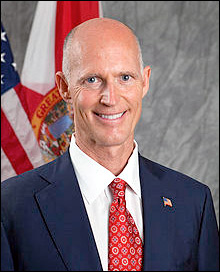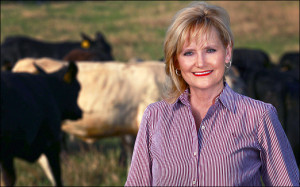April 16, 2018 — Mason-Dixon Polling & Research conducted a new poll of the Missouri electorate (April 4-6; 625 registered Missouri voters) and confirmed what most political observers already believe to be the case. That is, a campaign between two-term incumbent Sen. Claire McCaskill (D) and state Attorney General Josh Hawley (R) is a statistical tie. According to the M-D data, McCaskill has a slight 45-44 percent lead over the attorney general in one of eight Senate campaigns where the 2018 general election participants are already clearly defined.
With first quarter fundraising numbers about to become public after the April 15 filing deadline, the McCaskill Campaign has already issued a statement saying they raised a whopping $3.5 million in the first quarter, holding $11.5 million in the committee’s financial account. Hawley has not released his fundraising numbers, but it is clear he won’t have as much money as the senator at this early point in the election cycle. The conservative Missouri Rising Super PAC, however, reports raising $650,000 in the quarter to support their efforts to oppose Sen. McCaskill.
Though Hawley’s early campaign start has been slower than many Republican leaders and strategists would have preferred, the polling clearly indicates that he remains at parity with the senator.
In favorability terms, Sen. McCaskill scores a 41:38 percent positive to negative ratio, while AG Hawley posts 33:23 percent. The senator’s name ID is virtually maximized, as 99 percent of those surveyed could identify her. Hawley’s aggregate name recognition is 83 percent. By comparison, President Trump has a 44:38 percent favorability index with everyone recognizing his name.
Geographically, the poll clearly contrasts between metropolitan and rural candidate support, which is not altogether surprising though the stark and symmetrical polarization is more distinct here than in most other places.
Sen. McCaskill performs well in the St. Louis and Kansas City subsets, scoring support percentages of 51-39 and 51-37 percent, respectively, while Hawley posts mirror-like results in southeast (51-38 percent) and southwest (52-34 percent) Missouri. The two other poll segmentation regions, northern Missouri and central Missouri, break more strongly for Hawley (northern: 55-38 percent) and a bit weaker (central: 47-40 percent).
The geographic results tell us that this contest likely will be decided on voter turnout. McCaskill will do her best to increase the voter participation rate in the state’s two major population areas while the Hawley forces will concentrate on driving turnout in all areas to the north, south, around, and between St. Louis and Kansas City. Additionally, both campaigns must do well enough in their opponents’ strongholds to avoid falling hopelessly behind to the point where even capitalizing in their own favorable areas doesn’t completely erase the statewide deficit.
The poll also detects mirror image support in several demographic and political segments. In gender, age, and party support, the candidates are again almost symmetrically opposite.
Sen. McCaskill scores a 49-41 percent advantage with women; Hawley carries men 48-39 percent. With those over 50 years of age, Hawley claims a 51-37 percent advantage, while Sen. McCaskill takes those under 50 at a 54-36 percent clip. McCaskill tallies a Democratic support factor of 90-3 percent; Hawley fares slightly worse with Republicans: 84-6 percent. Among Independents, the two candidates are virtually tied, with Hawley claiming a slight 43-42 percent edge.
Obviously, the Missouri Senate campaign will remain one of the nation’s most competitive campaigns all the way to Election Day.






